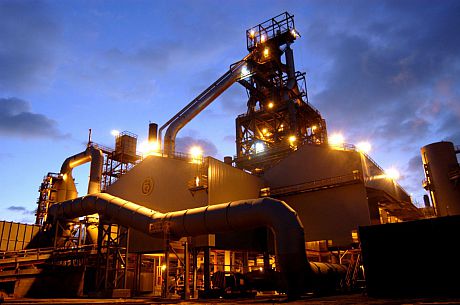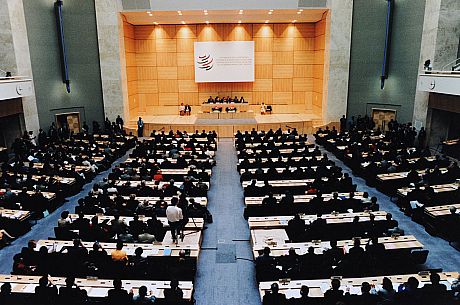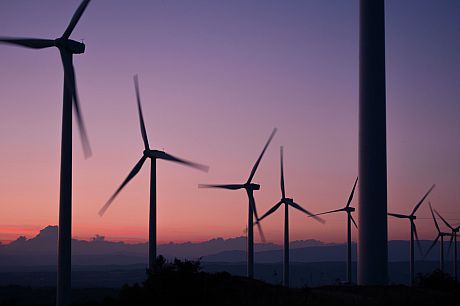Re-nationalisation in the wake of Brexit: The case for Manufacturing and Renewable Energy
Dr Emily Lydgate is a Lecturer in Law in the School of Law, Politics and Sociology at the University of Sussex.
As analysis of Brexit voting demographics shows the strongest support for leaving came from areas that have been hardest-hit by the loss of industrial manufacturing, such as the West Midlands and the Northeast.
Brexit is, in fact, a vote of no confidence in economic globalisation rather than the EU.
In the last half-century the UK has undertaken a dramatic economic experiment: the greatest de-industrialisation of any major nation, hoping free market competition will prevail and leave everyone better off. And industries have fled – primarily to Asia. Indeed, the EU referendum shared headlines with the loss of UK jobs in the steel industry to cheaper Chinese imports.
Brexit is a vote of no confidence in economic globalisation rather than the EU.
 The British steel industry at places such as Port Talbot (pictured) is under threat.
The British steel industry at places such as Port Talbot (pictured) is under threat.
Demonising Leavers accomplishes nothing. Instead we must understand as a society that losers of economic globalization will not simply accept the fact that they are sacrificing themselves for an economy that continues to grow in the aggregate.
Wiping out domestic manufacturing is a serious problem, as Brexit demonstrates: it has led to political instability and dangerous xenophobia as people blamed immigrants (rather than macroeconomic policies) for their woes. And this is not limited to the UK: in other European countries and the United States, large trade deficits, loss of manufacturing jobs and failure of governments to provide alternatives to the unemployed are leading to dangerous right-wing populism.
The economic and political elite cannot just watch while whole industries disappear.
Now is the time for enquiry about the root causes of the UK’s protest vote, and how these can be addressed more constructively not only in the UK but also globally. The economic and political elite cannot just watch while whole industries disappear. The UK needs to do more for these workers by providing more benefits, re-training and opportunities in new industries.
Brexit also underlines that global institutions are not carved in stone. It has delivered a shock to the global order, by one of that order’s main architects. In voting ‘Leave’ UK voters (or at least a slim majority of them) passed a vote of no confidence on the post‑WWII consensus itself: globalism over nationalism, economic integration over isolation. The institutions that support trade liberalisation, such as the World Trade Organisation (WTO), must play their part to ensure that countries are able to maintain viable industries.
 A meeting of the World Trade Organisation.
A meeting of the World Trade Organisation.
A call to reform international trade agreements so that they provide more support for domestic manufacturing may be greeted with extreme skepticism by proponents of free trade who fear the whole edifice crashing down. But there are some routes already available. One example is renewable energy.
The renewable energy required to meet targets agreed by the world’s major economies provides a tremendous opportunity for new manufacturing jobs. Many countries are using subsidies to incentivise renewable energy use. To make these subsidies more politically attractive governments often add local content requirements. This means that some of the taxpayer payouts go to support local manufacturers of solar panels and wind turbines. Not just the environment, but also local industries, are the winners.
Renewable energy is still what’s known as an infant industry. It can only benefit countries to develop these industries before they get wiped out by global competition.
Yet local content requirements (LCRs) are antithetical to the law of the WTO. The WTO Appellate Body made clear that renewable energy LCRs are expressly prohibited in a landmark 2013 case Canada – Renewable Energy. There is now a WTO stone-throwing match between glass houses. E.g, when the EU began an investigation of China’s solar panel subsidies, China responded by initiating a dispute on LCRs in the EU’s renewable energy sector. When the US complained of a LCR in a solar energy programme in India, India responded by pointing out several US programmes that seemed to contravene the same WTO provisions; it may well file a counter-complaint.
Fossil fuels are not expected to play by free market rules. In the US, for example, they receive nearly four times as many subsidies as renewable energy. Renewable energy is still what’s known as an infant industry. It can only benefit countries to develop these industries before they get wiped out by global competition.
 Renewable energy could be a source of new manufacturing jobs in future.
Renewable energy could be a source of new manufacturing jobs in future.
In light of the lessons of Brexit, the desire to avoid endlessly straining the WTO dispute settlement system, and the importance of climate change prevention, WTO Member States should enable LCRs for alternative energy in a principled and delimited manner.
Flexibility and compromise in this area will strengthen all stakeholders in the long run. Rather than sticking dogmatically to economic theory, countries must recognise the political and economic importance of being able to promise a disaffected population new manufacturing jobs, with the added benefit of mitigating climate change.





